What You'll Learn:
- Definition and explanation of white knuckle sobriety.
- Common symptoms experienced by individuals.
- Challenges faced and strategies to mitigate these risks and seek effective support.
Sobriety is a profound transformation that involves not just abstaining from substances but also fundamentally reshaping one’s lifestyle and coping mechanisms. Among the various recovery experiences, white knuckle sobriety represents a particularly challenging path, marked by personal strife and minimal external support.
What Is White Knuckle Sobriety?
White knuckle sobriety refers to the process of maintaining abstinence without resolving the underlying psychological and emotional issues that contribute to addiction. Individuals who are "white knuckling" their recovery often rely purely on willpower to avoid substance use, typically without the aid of therapy or support networks.
Risks and Symptoms of White-Knuckle Sobriety
The primary challenge of this approach is its sustainability. Relying solely on self-control can be mentally exhausting and often leads to a range of emotional and psychological issues. Here are some key risks and symptoms associated with this kind of recovery:
- Emotional Instability: Without proper emotional support, individuals may experience severe mood swings or emotional numbness.
- High Relapse Risk: White knuckle sobriety often leads to a higher risk of relapse. In the absence of coping mechanisms beyond abstinence, the likelihood of returning to substance use when faced with stress or triggers increases significantly.
- Mental Health Strain: The constant effort to suppress urges without addressing root causes can exacerbate or lead to additional mental health disorders such as anxiety and depression.
- Physical Health Issues: Stress and anxiety associated with this form of sobriety can manifest in physical symptoms such as headaches, insomnia, and digestive problems.
- Social Isolation: Individuals might isolate themselves to avoid situations where they might be tempted to use substances, leading to loneliness and a weakened support network.
Who Faces These Risks?
The term white knuckle alcoholic often describes someone who abstains from alcohol but has not engaged in any form of therapy or recovery program to address the addiction comprehensively. Similarly, anyone who is white knuckle sober faces similar challenges, regardless of the substance involved. This approach is not limited by the type of substance but by the lack of therapeutic intervention and community support.
Strategies for Support and Recovery
To mitigate the risks associated with white knuckle sobriety, consider the following strategies:
- Engage in Therapy: Therapy can help address the underlying emotional and psychological issues linked to addiction, providing healthier coping mechanisms than sheer willpower.
- Build a Support Network: Joining support groups like Alcoholics Anonymous (AA) or similar can provide the communal empathy and understanding needed to strengthen one's sobriety.
- Develop New Hobbies: Engaging in new activities can help redirect the focus from the urge to use substances to more productive and fulfilling pursuits.
- Practice Mindfulness and Relaxation Techniques: Techniques such as meditation, yoga, and deep-breathing exercises can reduce stress and improve mental resilience.
- Seek Comprehensive Treatment Programs: These programs offer a combination of medical support, counseling, and aftercare services that address all aspects of recovery.
If you or a loved one is navigating the turbulent waters of white-knuckle sobriety, remember, lasting recovery is more accessible with the right support and resources. At American Recovery Center, we understand the complexities of addiction and provide comprehensive treatment plans tailored to each individual's needs. Contact us today at 866-484-2502 to learn how we can help you build a sustainable recovery foundation. Do not face this journey alone, let us help you discover a balanced path to long-term sobriety.


